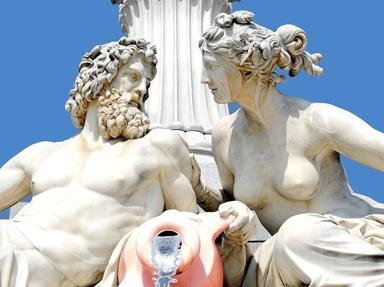Quiz Answer Key and Fun Facts
1. This small, scruffily dressed creature from the north of England and Scotland shares its name with a type of soft cake.
2. This is a spirit from the Scottish Highlands with a name reminiscent of a children's television show about a caveman who lived in a rubbish pile.
3. An industrious and friendly being from Wales willing to work for absolutely anybody... Except teetotallers and ministers of the church!
4. A northern English elf blessed with being able to cure children suffering with whooping cough and sharing its name with an appliance used for cooking.
5. This is an Irish fairy of very small stature that guards his pot of gold at the end of a rainbow.
6. These beings are very beautiful water nymphs condemned to dwell in Welsh mountain lakes after insulting Saint Patrick.
7. Too bad for heaven, too good for hell; these heroic Irish fairies are guilty of simply stealing beautiful mortal women to take as their brides.
8. Hazelnut eating beings that live two to a well and are endowed with magical properties that allows them to speak.
9. Popular in tales from the twelfth century these playful, dwarf-like creatures would play tricks on horsemen.
10. This spirit from northern England would take on the form of a bale of straw which gradually became heavier and heavier as one tried to move it.
Source: Author
SisterSeagull
This quiz was reviewed by FunTrivia editor
agony before going online.
Any errors found in FunTrivia content are routinely corrected through our feedback system.
